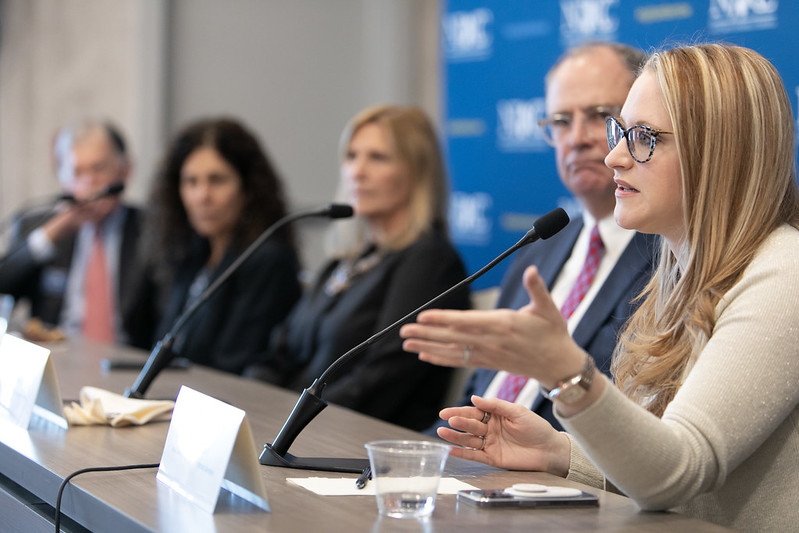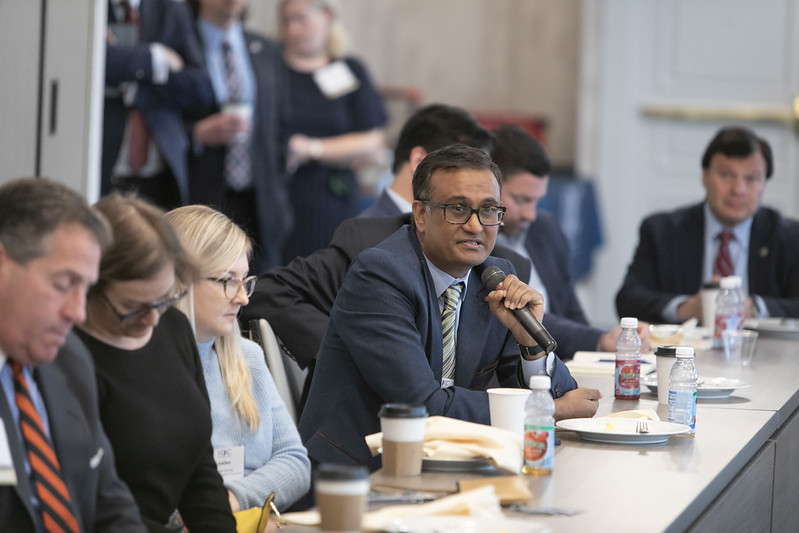Four of the state’s top health care insiders discussed the escalating health care costs; the shortage of health care workers; ways to attract people to the field; and the issues that can be addressed by Trenton. The conversation came during the New Jersey Chamber of Commerce’s May 23 Business Roundtable at the Hilton Garden Inn Hamilton.
“By the year 2030, we will have more people over 65 than we will have school-age children,” said Sarah Adelman, commissioner of the state Department of Human Services. “Preparing New Jersey communities for an aging population and trying to develop a workforce that can serve the aging population – nurses and aides – is a high priority.”
Adelman was joined on the panel by Cathy Bennett, president & CEO of the New Jersey Hospital Association; Ward Sanders, president of the New Jersey Association of Health Plans; and Linda Schwimmer, president & CEO of the New Jersey Health Care Quality Institute. The panel was moderated by Amirah Hussain, director of government relations at the N.J. Chamber of Commerce.
The health care provider shortage is across the board - nurses, doctors, behavioral health, and ancillary staff, said Bennett, of the Hospital Association. To address this, she said, the state and those within the professions need to recruit from diverse segments of the population. “We have to be present in communities and make a health care (career) attractive,” Bennett said. “We have to do it while they are in grammar school. We need to make sure New Jersey has the workforce it deserves and it needs when it comes to health care.”
Human Services Commissioner Adelman said the state is raising Medicare rates to bring up wages for providers like home aides. “It should not be more attractive to work in retail or food services than it is caring for our loved ones,” she said.
“Why don’t we have enough health care providers?” asked Schwimmer, of the New Jersey Health Care Quality Institute. “Part of it is the reimbursing system and part of it is credentialing system,” Schwimmer said. “There needs to be changes.”
On the topic of affordability, Schwimmer added, “We know care needs to move to more affordable settings, in some cases ambulatory surgical care centers. But we don’t have the info on how safe (ambulatory surgical care centers) are. I don’t doubt they are safe, but we need (to collect) that info.”
The affordability and shortages issue create “tension” between health care providers and health care insurers, said Sanders, of the New Jersey Association of Health Plans.
“There are (staffing) shortages, and it hurts everybody, especially the patients,” Sanders added. “There is a role for government and a role for the private sector to address this.”


